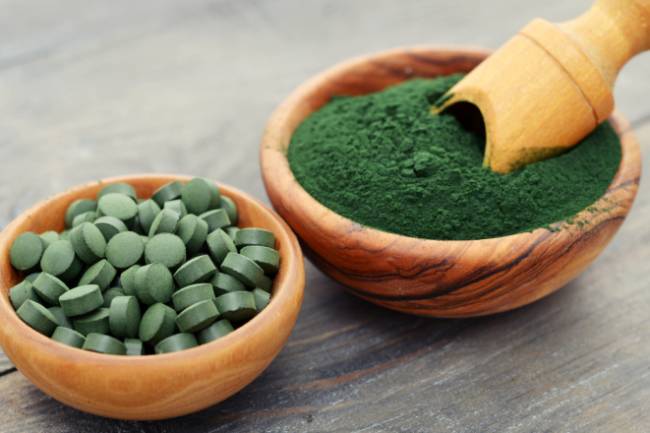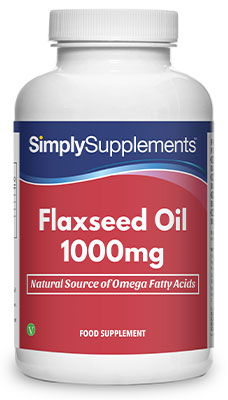How to Avoid Dry Skin in Winter

Winter can be the toughest time of the year for your skin. The most common problem experienced is dryness, which is often experienced together with a rougher skin surface, soreness and increased wrinkles. In more extreme cases your skin may become red, itchy and uncomfortable.
Hardly what you'd dreamed of for the festive season - but help is at hand…
Why Do We Get Dry Skin in Winter?
Our skin is comprised of numerous layers, each of which has a different function.
When it comes to dry skin the layer involved is known as the “stratum corneum”. You can think of it rather like a brick wall - cells known as corneocytes act like the bricks while oil molecules behave like cement.
This creates a waterproof covering within your skin, preventing moisture from escaping.
The corneocyte cells absorb moisture and expand, creating greater elasticity and, as a result, a reduction in wrinkles.
Problems occur when the stratum corneum becomes damaged.
While experts are still investigating the root causes of dry skin (known to dermatologists as “xerosis”) it is commonly believed that there are two factors at play…
Firstly, consider the process of washing your dishes. When viewed on a microscopic level washing up liquid is found to have two ends - one which is attracted to oil while the other is attracted to water. When you use soap, the oil-loving ends “stick” to any fat or grease from your plates. With millions of such molecules they coat the oils and fats, holding them in suspension until you empty the sink. This allows your plates to come out clean and oil-free.
The same process can occur with the soaps and shower gels we use in the bathroom. While they may help to clean your skin, they can also transport oils away from your skin. And as we have seen, these oils are a critical part of a healthy complexion.
The second element is that winter weather seems to play a part in the elimination of these oils. A scientific study in Japan measured the oil content of skin, together with the amount of water that was subsequently being lost, throughout the year. They found that levels of skin oils were 2-3 times higher in July when compared to January.
Elsewhere the prevalence and severity of skin complaints were correlated against environmental conditions, with the experts noting a direct correction with low temperatures and/or low humidity. In brief, it seems that the environmental conditions our skin is subjected to during the winter months permits its moisture content to decline.
Lower outdoor temperatures result in reduced humidity. Strong winter winds also serve to dehydrate the skin. And things aren't improved much by going indoors, as most modern central heating systems are designed to keep houses dry, thus reducing the chances of mould growth.
Fortunately, all is not lost.
Dry winter skin is so commonly experienced that dermatologists have invested considerable time and effort into understanding the causes and - more importantly - some effective solutions....
How to Get Rid of Dry Winter Skin
Add these simple beauty tricks to your daily routine to fight dry winter skin and maintain a healthy complexion throughout the year.
Increase Your Intake of Omega 3 Oils
It has long been thought that the polyunsaturated fatty acids found in omega 3 oils - like cod liver oil - may help to improve symptoms of dry skin. Recently this has been experimentally tested and the results look very promising indeed.
Linoleic acid has been particularly well researched in this regard. It has been found in the stratum corneum and has been shown to affect permeability of the skin to moisture. In the study, women suffering from dry skin were prescribed 2.2g of either flaxseed oil or borage oil (also known as starflower oil) per day for a period of 12 weeks. The study observed that supplementation with both sources of omega 3 resulted in reduced moisture loss, smoother skin and improvements in reddening.
Elsewhere, similar studies have been carried out on fish oils, and found similar positive impacts on dry skin. The experts concluded that fish oils “accelerate... recovery from dry skin” and that long-term supplementation may “reinforce and restore cutaneous integrity and function”.
Learn more about fish oils here.
Take Your Vitamins
A number of vitamins are implicated in cases of dry winter skin.
Firstly, studies suggest a relationship between vitamin C and skin health. One analysis involved 4025 women, who had their skin assessed by dermatologists before being questioned on their diet. They found that higher vitamin C consumption is associated with a lower likelihood of wrinkles and skin dryness.
Vitamin D is the other vitamin which researchers believe helps to maintain skin quality. One experiment enrolled 107 children, providing them either with regular vitamin D supplementation or a placebo. The researchers found that those children receiving the vitamin D treatment saw significant improvements in their skin condition.
It is worth noting that while vitamin D can naturally be synthesised in response to the sun's rays, the strength of sunlight available in winter is not sufficient to support this process. Indeed, an analysis of the impact that sunlight has on vitamin D production found that “no cutaneous vitamin D production occurs at 51 degrees latitude and higher during some periods of the year”. The UK is located at 55'. It is for this reason that the government now recommends that everyone supplements with 10 micrograms of vitamin D during the winter months.
Find out about vitamin D supplements here.
Change Your Bathing Routine
Although a relaxing bath is tempting when it's cold outside, long hot baths or showers quickly strip the skin of its natural moisturising oils.
Keep showers to less than ten minutes and use luke-warm water to protect the skins outer barrier. Also, consider getting rid of your traditional soap or shower gel and instead opt for a medicated soap-free face wash and body wash with added moisturisers.
Grab a Moisturiser (or Two)
Possibly the most obvious step for avoiding dry winter skin is the regular use of a moisturiser.
Effective moisturisers act by artificially creating a waterproof layer on your skin so that moisture levels can begin to increase.
Not all are moisturisers are created equal, however, and some ingredients such as lanolin may cause irritation on cracked, dry skin. Experiment with the different options until you find one that works for you, and be sure to apply it regularly. Morning and evening, plus after any bathing session, is a good start.
Note that studies have shown the natural oil content of skin varies not just by season but also by part of the body. Your face, for example, is particularly likely to suffer over the winter months, while arms and legs may fare rather better. Subsequently, some people find that a specific moisturiser works well on one part of the body but not another. This is perfectly natural, and you shouldn't be afraid to use multiple moisturisers when beneficial.
Wrap Up Warm
Dermatologists have found that skin exposed to the most severe weather tends to suffer the most from dryness, itchiness and general soreness. Consequently it makes sense to avoid direct contact with winter air whenever possible.
As the mercury starts to fall, so it is wise to dig out that pair of gloves, your winter hat and scarf. Wrap yourself up well before heading out and you'll retain as much moisture as possible.
Some people even take this a step further and like to wear thin gloves indoors to retain moisture. A helpful trick can be applying moisturiser to sore, cracked hands just before bed, then putting on a thin pair of cotton gloves. These feel good against the skin, and help protect your hands overnight. With such a bedtime routine, many people find that dry hands become a thing of the past.
Use a Humidifier
Many people are so worried about mould during the winter months that they use dehumidifiers to suck as much moisture from the air as possible. Even without such a device today's central heating systems are very effective at evaporating away water in the air.
A humidifier does the opposite, however, and gently increases moisture in the air. Typically they work either by heating up a container of water so that it evaporates, or they use ultrasonic pulses to catapult thousands of microscopic water molecules into the air.
Experiments have shown that when participants move from a low humidity environment to a high humidity environment skin condition starts to improve within hours, slowly eliminating feelings of dryness over time.
As well as helping to ease sore winter skin, humidifiers can also offer a number of other health benefits. Some people find, for example, that overly dry air results in mucous membranes drying out, resulting in eyes and noses getting red and sore, or asthma worsening. Lastly, and somewhat oddly, higher humidities can also make rooms feel warmer, without needing to turn up the heating.
Avoid Harsh Chemicals
Avoid products with deodorants, fragrance or alcohol, as these can strip the skin of natural oils. Also try to use perfume sparingly as this is a common skin irritant.
Conclusion
As you can see, there's no need to suffer with itchy, dry skin this winter. By following a few simple steps your skin can be (almost) as smooth and healthy as it is at other times of the year. Wrap up warm, moisturize regularly and try to increase the humidity that your skin is exposed to and you'll be ready for anything.

Sources:
http://www.sciencedirect.com/science/article/pii/S0923181115300207
https://www.cambridge.org/core/journals/british-journal-of-nutrition/article/intervention-with-flaxseed-and-borage-oil-supplements-modulates-skin-condition-in-women/BBCCBB4F29A6E5DCA6C7B9513C7AFA37
http://ajcn.nutrition.org/content/86/4/1225.short
http://www.sciencedirect.com/science/article/pii/S0738081X10001203
http://www.tandfonline.com/doi/abs/10.3109/09546639709160948
http://onlinelibrary.wiley.com/doi/10.1046/j.1365-2133.1998.02072.x/full
https://www.jstage.jst.go.jp/article/cpb1958/28/2/28_2_387/_article/-char/ja/
http://www.sciencedirect.com/science/article/pii/S0923181102001378
http://www.sciencedirect.com/science/article/pii/S0091674914011142
http://onlinelibrary.wiley.com/doi/10.1562/2004-11-19-RN-375/full
https://www.karger.com/Article/Abstract/73089
https://www.ncbi.nlm.nih.gov/pubmed/27924708
https://link.springer.com/article/10.1007%2FBF02505294?LI=true
https://www.uspharmacist.com/article/xerosis-treating-clinically-dry-skin
http://www.sciencedirect.com/science/article/pii/S0738081X10000441

 Nicole
Nicole 

























